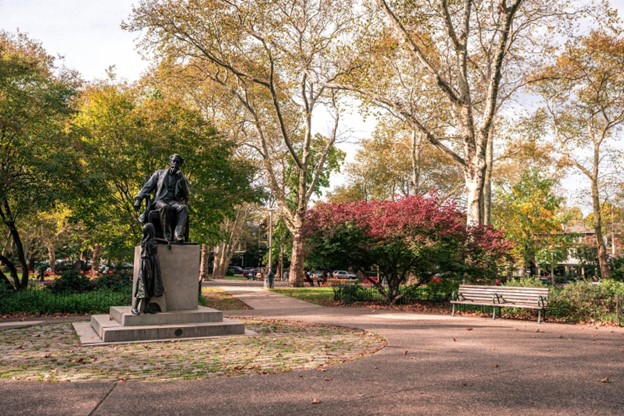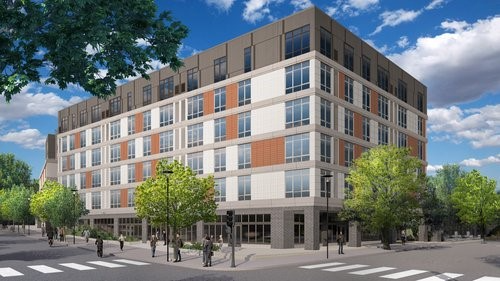
University City, a dynamic and rapidly growing neighborhood in West Philadelphia, is not only home to some of the nation's top universities and cultural institutions but also a major center of healthcare innovation and opportunities. The presence of world-renowned medical institutions, research centers, and biotech companies has made this area a vital hub for both healthcare advancement and the cultivation of healthcare professionals. For students pursuing careers in medicine, public health, and biotechnology, as well as young professionals seeking to advance their careers, University City offers unparalleled access to cutting-edge research, job opportunities, and a collaborative environment. With luxury apartments in Philadelphia providing convenient living options, residents can enjoy the best of both work and life in this thriving district.
This article highlights the ways in which University City is shaping Philadelphia’s healthcare landscape, offering significant opportunities for students and young professionals in medicine, public health, biotechnology, and healthcare innovation.
At the heart of University City’s healthcare ecosystem is the University of Pennsylvania (Penn), which plays a central role in shaping the future of healthcare both regionally and nationally. Penn is home to the Perelman School of Medicine, one of the top-ranked medical schools in the country. This prestigious institution is known for its cutting-edge research, world-class faculty, and innovative healthcare programs, making it a cornerstone of healthcare education and a major player in healthcare innovation.
For medical students, Penn offers comprehensive programs that blend rigorous academic coursework with hands-on clinical training. With access to the Hospital of the University of Pennsylvania (HUP), one of the nation's leading teaching hospitals, students receive practical experience while working alongside top healthcare professionals. The proximity to HUP and other affiliated facilities, such as Penn Medicine and Penn Presbyterian Medical Center, ensures that students gain a broad range of clinical experiences across diverse medical specialties.
In addition to traditional medical training, Penn's Master of Public Health (MPH) program prepares students for careers in public health, policy, and healthcare management. These programs are integral to shaping future leaders in healthcare who are equipped with the knowledge to tackle complex health issues at local, national, and global levels.
University City is home to some of the nation’s most innovative healthcare research, largely driven by Penn Medicine and its associated research institutions, such as the Abramson Cancer Center and the Penn Institute for Biomedical Informatics. Penn researchers are at the forefront of breakthroughs in cancer treatment, gene therapy, neuroscience, and precision medicine, pushing the boundaries of what’s possible in healthcare.
For students interested in healthcare innovation, University City offers direct access to research labs and opportunities to participate in cutting-edge studies. Through internships, fellowships, and research assistantships, students can engage in hands-on research that directly contributes to the development of new medical treatments, technologies, and healthcare practices. This connection between academia and real-world medical application offers students invaluable experience that can propel their careers in healthcare.
Another prominent institution in University City contributing to the healthcare landscape is Drexel University. Drexel’s College of Medicine and its strong programs in biotechnology and public health make it a key player in producing the next generation of healthcare professionals and innovators.

Drexel’s School of Biomedical Engineering, Science, and Health Systems offers interdisciplinary programs that integrate engineering, science, and healthcare. These programs equip students with the skills needed to develop new technologies and devices that improve patient care, making Drexel an important player in Philadelphia’s thriving biotech sector. The proximity to leading biotech companies in University City provides students with ample internship and career opportunities in biotechnology, medical device design, and pharmaceuticals.
In addition, Drexel’s College of Medicine offers a range of programs from traditional medical training to specialized training in fields such as neurosurgery, emergency medicine, and family medicine. Students at Drexel benefit from access to Drexel’s University Research Laboratories and the Drexel Institute for Biotechnology and Virology Research, where they can engage in groundbreaking biomedical research.
Drexel is also a leading institution for students interested in public health. The Drexel Dornsife School of Public Health offers highly regarded programs in public health policy, epidemiology, and global health. These programs are essential in preparing the next generation of healthcare professionals to address public health crises, health disparities, and environmental health challenges.
Drexel’s faculty members are at the forefront of research in public health, working on projects that aim to reduce the impact of chronic diseases, improve healthcare delivery, and address the social determinants of health. Drexel students benefit from the opportunity to collaborate on these important initiatives, gaining practical experience in the field and contributing to real-world health solutions.
In addition to academic institutions, University City is becoming a hub for healthcare innovation, attracting numerous healthcare startups and biotech companies. With proximity to top universities, research centers, and venture capital firms, University City offers an ecosystem that supports the growth of startups and emerging businesses in the healthcare space.
The Pennovation Center at the University of Pennsylvania is a leading incubator for healthcare and biotech startups. This cutting-edge facility provides office space, labs, and support services for early-stage companies working in areas such as gene editing, medical devices, and digital health. Pennovation fosters collaboration between Penn’s researchers, students, and entrepreneurs, enabling startups to take advantage of the university's research and expertise.
Similarly, the University City Science Center is home to BioLabs, which offers lab space and resources for life sciences and biotech companies. BioLabs connects startups with established companies, research experts, and investors, creating a thriving environment for healthcare innovation. Young professionals interested in entrepreneurship or pursuing careers in healthcare startups can benefit from being in such an ecosystem, where they have access to mentors, funding opportunities, and cutting-edge research.
University City’s position as a healthcare hub also means that there are numerous networking opportunities for students and young professionals. From career fairs and research conferences to industry-specific events and meetups, University City is filled with opportunities to connect with like-minded individuals, potential employers, and mentors in the healthcare field.
For example, Penn’s Center for Health Care Innovation regularly hosts events that bring together entrepreneurs, healthcare professionals, and academics to discuss the latest developments in healthcare technology and policy. Networking at these events can help students and young professionals gain valuable insights, make professional connections, and explore career opportunities in healthcare.
In addition to networking, University City offers a wealth of internships and fellowships at both the university and institutional levels. Penn Medicine, for example, offers clinical and research internships for students interested in healthcare professions, while Drexel’s biotech programs provide opportunities for students to gain hands-on experience at local biotech firms.
These experiences are invaluable for students and young professionals looking to break into the healthcare field. Internships and fellowships provide practical experience, boost resumes, and can often lead to full-time job opportunities after graduation.
University City’s healthcare community is vibrant and diverse, made up of individuals from all backgrounds, specialties, and levels of expertise. For students and young professionals, this offers a unique opportunity to learn from established leaders in the field, collaborate with peers, and gain mentorship from experienced professionals.
Whether you are working in research, healthcare management, biotechnology, or clinical practice, University City’s healthcare community offers a wealth of support and growth opportunities. The University City District also fosters connections between academic institutions, healthcare professionals, and local residents through outreach programs and community events, strengthening the bonds between the healthcare sector and the wider community.
University City is rapidly becoming one of the most influential healthcare and innovation hubs in the United States. With its world-class universities, cutting-edge research centers, growing biotech industry, and extensive network of healthcare professionals, the neighborhood provides invaluable opportunities for students and young professionals interested in medicine, public health, biotechnology, and healthcare innovation.
For students, living and studying in University City offers direct access to top-tier educational institutions, internships, and research opportunities. For young professionals, the proximity to healthcare startups, biotech firms, and research centers provides a fertile ground for career development, networking, and collaboration. As University City continues to expand and evolve, it will undoubtedly remain a pivotal part of Philadelphia’s healthcare landscape, offering both students and professionals the chance to shape the future of healthcare.